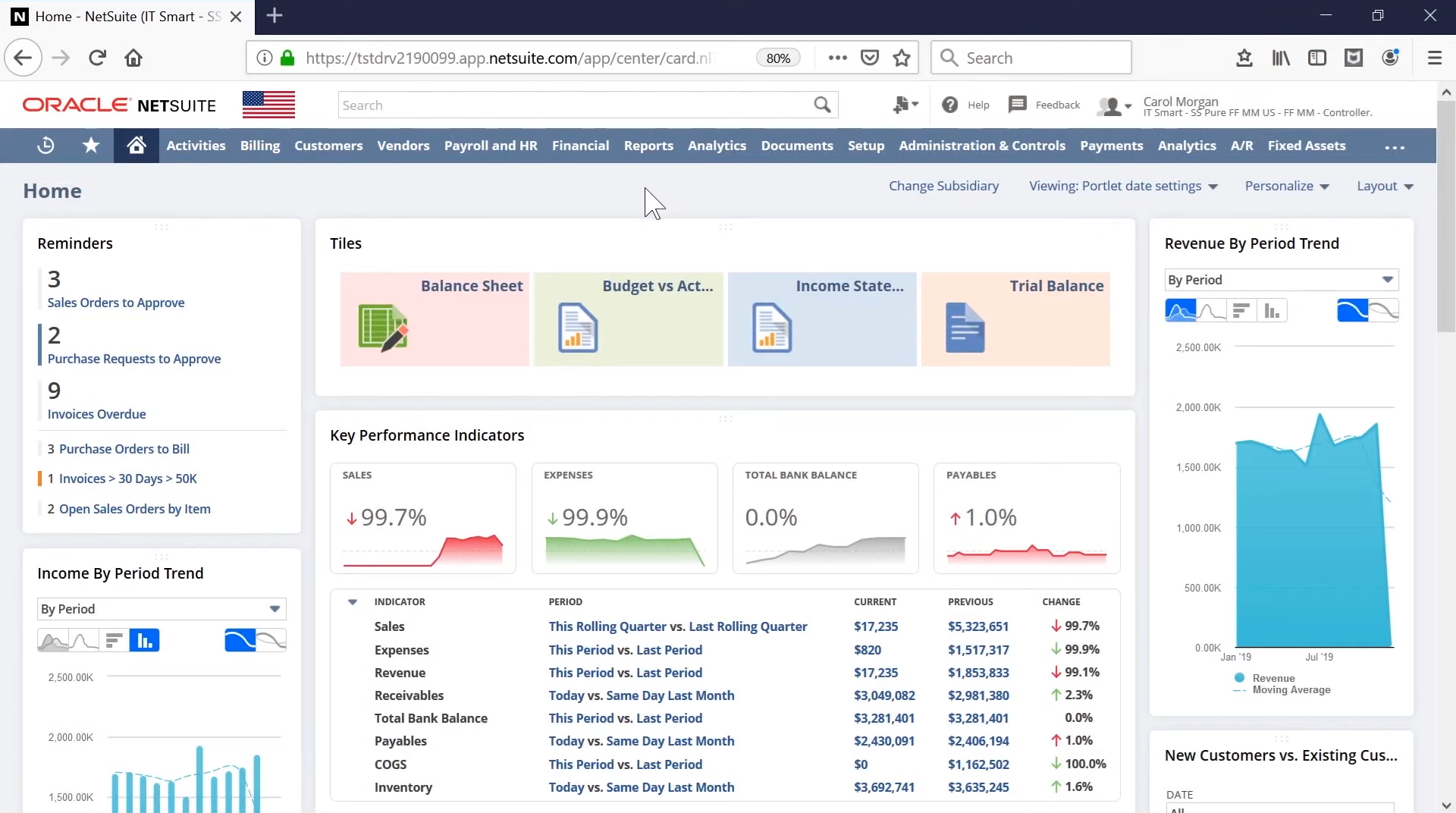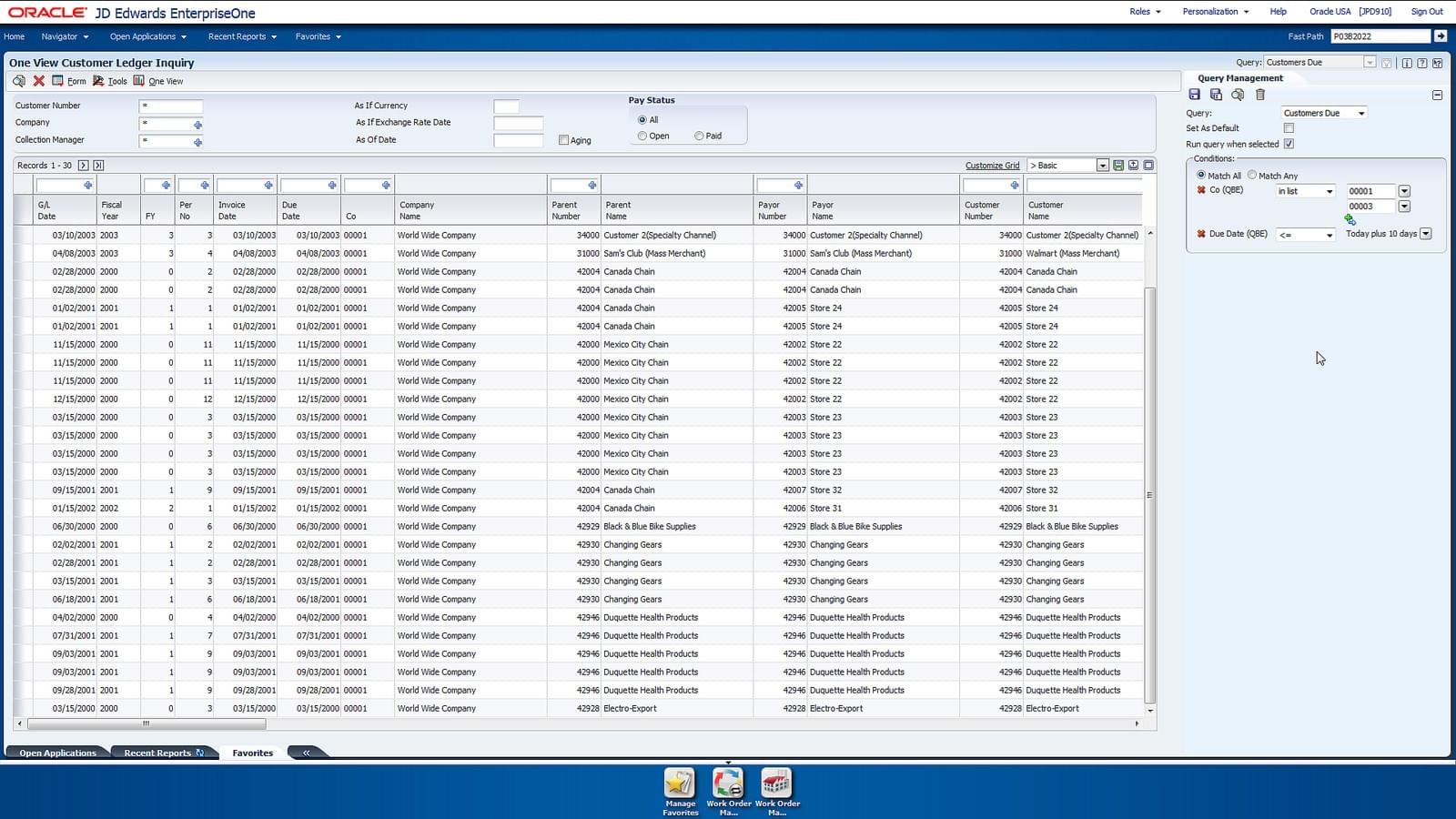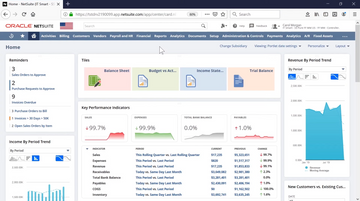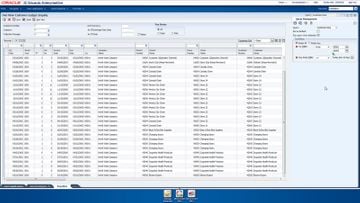JD Edwards EnterpriseOne vs. NetSuite ERP


JD Edwards EnterpriseOne is an ERP with a fully integrated suite of over 80 business applications. The platform can be deployed on Oracle’s cloud, a private cloud, on-premise, or a hybrid cloud model to fit each business’s needs. It is ideally suited for organizations that manufacture, construct, distribute, service, or manage products and physical assets.
With JD Edwards EnterpriseOne Release 24, Oracle has leaned on customer feedback and requests to improve the platform and provide updated features to each of its core modules. This includes improvements to database configuration, procurement processes, product blending, inventory management, and task/workflow management.
-
Price Range
$ $ $ $ $$ $ $ $ $
- Starting Price $1,398/month
- Client OS Web
-
Price Range
$ $ $ $ $$ $ $ $ $
- Starting Price $5,605/user/month
- Client OS Windows
Our editorial review staff has had the opportunity to demo, use, and review both NetSuite ERP and JD Edwards EnterpriseOne. We’ve been able to assess the strengths and weaknesses of each product, helping us provide an informed comparison of these two popular ERP solutions.
Target Market Comparison
NetSuite ERP is a multi-tenant ERP software that supports finance, operations, sales, service, and HR needs. It’s known for its customization and scalability. NetSuite is best suited for small businesses to large enterprises with ten to over 10,000 employees.
JD Edwards EnterpriseOne is an industry-specific ERP system that runs on Oracle’s cloud. It’s primarily used in the Information Technology and Services and Computer Software sectors. JD Edwards EnterpriseOne is ideal for enterprise-level organizations and medium-sized companies.
Pros and Cons
NetSuite ERP stands out for its robust accounting and supply chain management capabilities. It also offers out-of-the-box functionality and a mature, cloud-native design. There are hundreds of third-party add-ons available, making it highly customizable and suitable for various industries. However, it may not be the best choice for startups due to its complexity and lack of support for heavy manufacturing.
JD Edwards EnterpriseOne, on the other hand, is recognized for its comprehensive, industry-specific functionalities. It’s highly scalable and flexible, with updates often released quarterly. However, it comes with a steep learning curve and a high total cost of ownership. The interface might seem dated compared to newer tools, and the implementation process can be complex.
JD Edwards EnterpriseOne vs. NetSuite ERP: Which is Better for Most Businesses?
For most businesses, we recommend NetSuite ERP. It’s a versatile, cloud-based ERP system that can handle the needs of a wide range of company sizes. It offers robust accounting and supply chain management capabilities, and its high customizability makes it adaptable to different industry requirements.
Although JD Edwards EnterpriseOne is a feature-rich platform, its steep learning curve and high total cost ownership make it less suited for businesses looking for a user-friendly, cost-effective solution.
For further comparison, check out our roundup of the best ERP software overall.



